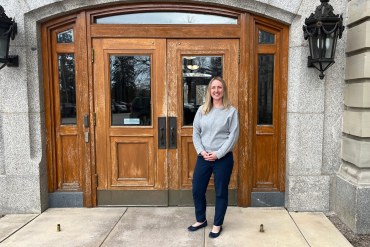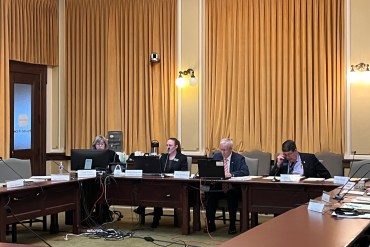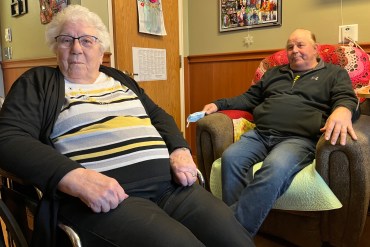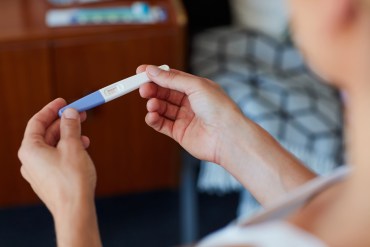Montana Considers Allowing Physician Assistants to Practice Independently
The bill, modeled on laws in North Dakota and Wyoming, is opposed by doctors who say it would let physician assistants practice outside the scope of their training.
Community Resurrects Colorado Birth Center Closed by Private Equity Firm
A private equity firm bought a birth center and then shut it down. The community brought it back as a nonprofit.
More Young Colorado Children Are Consuming Marijuana Despite Efforts to Stop Them
Lawmakers say they don’t plan to revise state regulations on the sale of edibles despite more kids 5 and under ingesting them.
A Secret Weapon in Preventing the Next Pandemic: Fruit Bats
New research links habitat destruction with the spillover of viruses from animals to humans.
Why Two States Remain Holdouts on Distracted Driving Laws
Missouri and Montana are the only states without distracted driving laws for all drivers. With traffic fatalities rising significantly nationwide, some Missouri lawmakers and advocates for roadway safety are eyeing bills in the new legislative session that would crack down on texting while driving in the Show Me State.
Montana Lawmakers Seek More Information About Governor’s HEART Fund
Republican Gov. Greg Gianforte’s Healing and Ending Addiction Through Recovery and Treatment fund has spent $5.2 million since 2021. With a proposed increase, providers and lawmakers alike want to tap into the money.
As Pandemic-Era Medicaid Provisions Lapse, Millions Approach a Coverage Cliff
States are trying to reach millions of Medicaid enrollees to make sure those still eligible remain covered and help others find new health insurance.
Montana Pharmacists May Get More Power to Prescribe
Supporters of a proposed law say it would fill a health provider gap in rural areas, while doctors worry it will give pharmacists power outside the scope of their education.
Wave of Rural Nursing Home Closures Grows Amid Staffing Crunch
Many small-town care facilities that remain open are limiting admissions, citing a lack of staff, while a wave of others shutter. That means more patients are marooned in hospitals or placed far away from their families.
As States Seek to Limit Abortions, Montana Wants to Redefine What Is Medically Necessary
Montana officials are looking to tighten rules around medically necessary abortions for those who use Medicaid as their health insurance. Reproductive health advocates and Democratic lawmakers have said the move is part of a broader agenda to whittle away access to the procedure.
Transgender People in Rural America Struggle to Find Doctors Willing or Able to Provide Care
Many health professionals in rural areas don’t know how to provide gender-affirming care, leaving transgender patients with few options.
Abortion Debate Ramps Up in States as Congress Deadlocks
Abortion is a top issue for state lawmakers meeting for their first full sessions since Roe v. Wade was overturned.
Journalists Follow Up on Radon Mine Health Spas, Open Enrollment, and Health Fraud
KHN and California Healthline staff made the rounds on national and local media this week to discuss their stories. Here’s a collection of their appearances.
Luring Out-of-State Professionals Is Just the First Step in Solving Montana’s Health Worker Shortage
Two proposals would make it easier for professionals with out-of-state licenses to work in Montana, but that tactic likely won’t be enough to fill the demand for mental health providers.
After a Brief Pandemic Reprieve, Rural Workers Return to Life Without Paid Leave
Coastal and politically progressive states have passed stronger paid sick and family leave policies, but many workers in rural America are left out, facing tough decisions when choosing between caring for themselves or sick family members or keeping their jobs.
Why People Who Experience Severe Nausea During Pregnancy Often Go Untreated
Because morning sickness is common, severe nausea in pregnancy can be minimized by doctors or the patients themselves. Untreated, symptoms can worsen — and delays lead to medical emergencies.
Ending Involuntary Commitments Would Shift Burden of Dementia Care to Strapped Communities
Health department officials anticipate having to transfer two dozen patients from the Montana State Hospital to another state-run facility if a bill to end involuntary commitments passes.
Medicaid and Abortion Top Health Agenda for Montana Lawmakers
State lawmakers say their health care goals for the new legislative session are to lower costs and improve access to care. They’ll have to grapple with a full slate of other issues, as well.
During In-Flight Emergencies, Sometimes Airlines’ Medical Kits Fall Short
U.S. airlines have response plans for passengers who run into health issues in flight, but planes carry limited and sometimes incomplete medical supplies that can put travelers at risk.
Telehealth Brings Expert Sexual Assault Exams to Rural Patients
Some rural residents must travel hours for a sexual assault exam. Specialized telehealth services are expanding so they can obtain care closer to home.



























